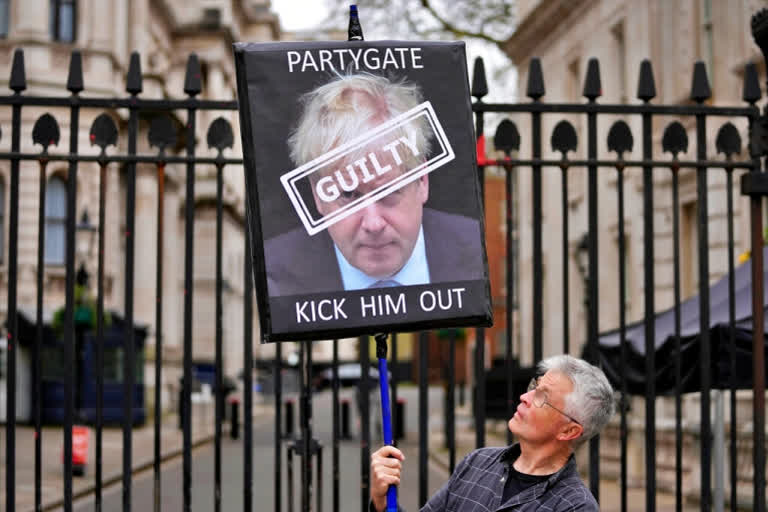London (UK): British Prime Minister Boris Johnson resigned on Thursday after days of defections crippled the controversial leader and left him unable to govern. Johnson finally stepped down after one of his closest allies, Treasury Chief Nadhim Zahawi, told the prime minister to resign for the good of the country.
Here are the 10 points in this big story:
- Following mass resignations by Cabinet members which started on Wednesday and the number of resignations increased to more than 50 on the second day which compelled Boris Johnson to step down as British Prime Minister. He expressed his 'regret' at his inability to hold onto his position as Prime Minister while stressing that he is 'immensely proud' of his achievements in office.
- "The process of choosing a new leader should begin now. And today I have appointed a cabinet to serve, as I will until a new leader is in place," Johnson said during his address at 10 Downing Street in London. "It is clearly the will of the parliamentary Conservative party that there should be a new leader of that party, and therefore a new prime minister," Johnson said.
- Almost 30 UK government officials, including key figures like UK Health Secretary Sajid Javid and Chancellor of the Exchequer Rishi Sunak, have already submitted their resignations over the recent scandal involving former deputy chief whip Christopher Pincher.
- A total of 58 ministers quit the government following an ethics scandal which ultimately forced the UK premier to resign. Earlier today, another minister of his government, Brandon Lewis resigned from his position, saying that he no longer believed the values of honesty, integrity and mutual respect are being upheld by Johnson's government.
- Johnson agreed to step down after one of his closest allies, Treasury Chief Nadhim Zahawi, told the prime minister to resign for the good of the country. "Prime Minister: this is not sustainable and it will only get worse: for you, for the Conservative Party and most importantly of all the country," Zahawi said in a letter to Johnson. "You must do the right thing and go now."
- The British Foreign Secretary Liz Truss has also cut short her trip to a G20 meeting in Indonesia to return to London as she is widely seen as one of the potential contenders for the leader of the Conservative Party.
- Johnson, 58, managed to remain in power for almost three years, despite allegations that he was too close to party donors, that he protected supporters from bullying and corruption allegations, and that he misled Parliament and was dishonest to the public about government office parties that broke pandemic lockdown rules.
- Recent disclosures that Johnson knew about sexual misconduct allegations against Chris Pincher, a Conservative lawmaker before he promoted Pincher to a senior position turned out to be the last straw. Last week, Pincher resigned as deputy chief whip after complaints he groped two men at a private club. That triggered a series of reports about past allegations levelled against Pincher — and shifting explanations from the government about what Johnson knew when he tapped him for a senior job enforcing party discipline.
- Johnson had attempted to defy the mathematics of parliamentary government and the traditions of British politics. It is rare for a prime minister to cling to power in the face of this much pressure from his Cabinet colleagues.
- The closest parallel may be Margaret Thatcher, the long-time Conservative prime minister who in 1990 sought to remain in office after her authority was undermined by disagreements over Britain’s relationship with what is now known as the European Union. But even she decided to resign after a number of Cabinet ministers told her it would be better for the party if she stepped aside.



